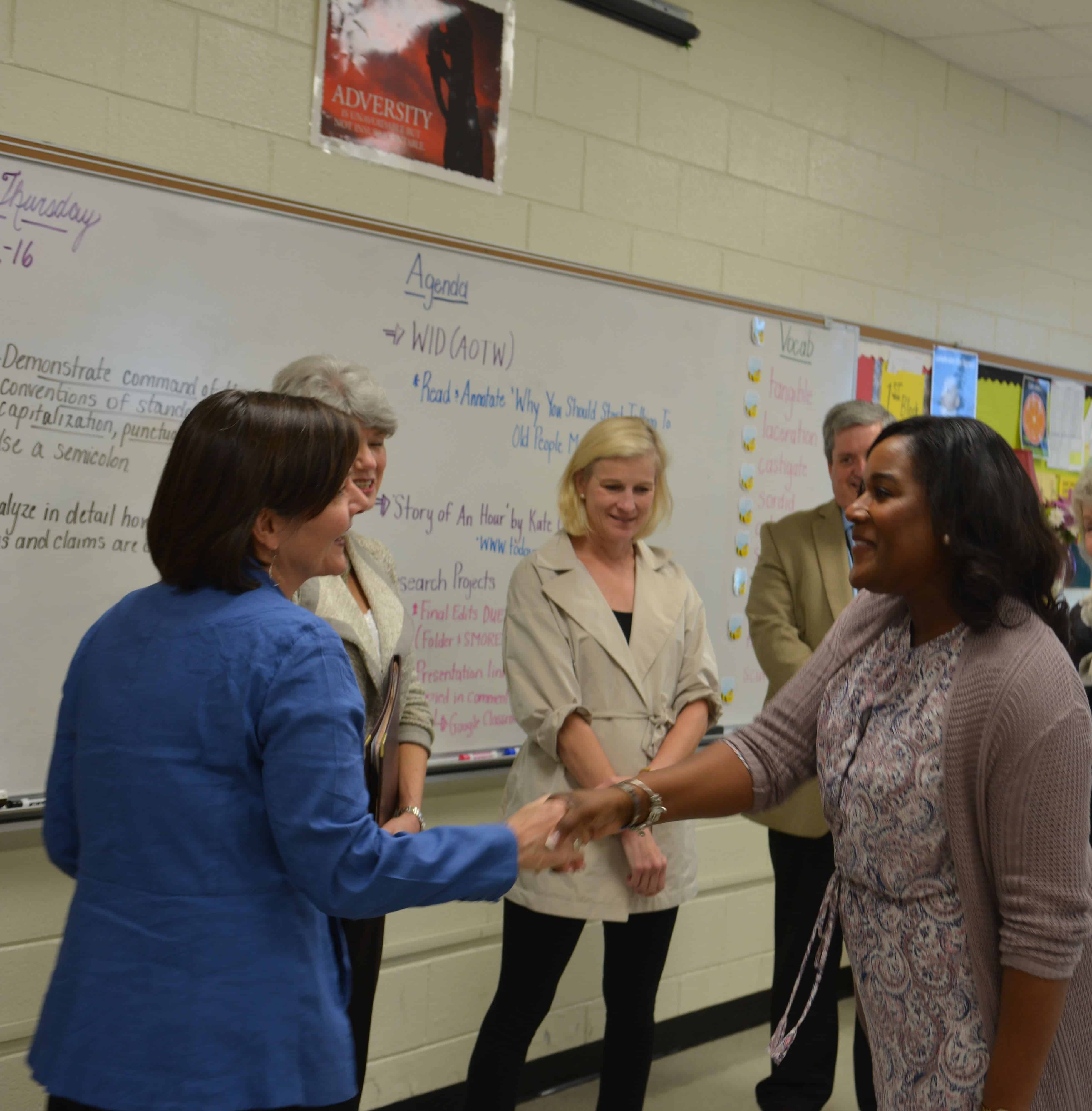Ellen McIntyre, dean of the UNC-Charlotte College of Education, is part of a national organization called Deans for Impact. McIntyre joined about a year and a half ago, not long after the program itself launched in 2015. Anthony Graham, dean of the College of Education at N.C. A&T State University, is also a member.
Deans for Impact is working to change the way teachers are prepared. Its mission is to transform the system of education preparation as a means to improve student learning.


Collectively, they want to improve public perception of teachers and their preparation programs, prove that education preparation programs can have teachers ready to teach effectively from their first day in the classroom, and make the United States the leader in teacher preparation.
“I wanted a support team,” McIntyre said. “I wanted people who could give me ideas about how to take the giant steps necessary to change an institution,” she said.
One of the primary ways she said the program is trying to change teacher preparation is by relying more on data and by embracing evidence-based research — which is to say that the program wants to make sure schools of education teach practices that evidence has shown to be effective.
“There is a lot of teacher preparation out there that isn’t necessarily evidence based,” she said, adding later, “I’ve known for a long time that even as good as some teacher educators might be, we have a problem systematically.”
While there may be individual professors who are teaching educators using evidence and proven practices, there is no uniform model being instituted across education preparation institutions. That’s what needs to change, McIntyre said.
She likened an effective teacher preparation program model to something like medicine or nursing — professions where there is a common set of competencies that every student is expected to know.
“We have some phenomenal, really phenomenal teacher educators, people who know the field, work really hard, people who do right by their candidates, but if it’s not across the program, where the entire program is working together…one occasional professor can’t do it,” she said.
Presently, Deans for Impact is developing an agreement on common measures and common indicators of quality that can be instituted by teacher preparation programs at large.
“Right now across the nation in teacher education, there’s not a an agreement that ‘OK, you have to know this to graduate,’ in the same way there is in medical school,” she said.
The goal with all of this is to make sure that when beginning teachers start on the job, they are able to facilitate learning in their classrooms. But McIntyre recognizes teacher preparation is just a first step in the education of a teacher. It takes years to become a truly great, veteran teacher.
“We just want the kind of teacher who is ready to go in confident, can do some of these basic competencies, so that learning can happen in their first year, and their happy and will stay,” she said.
And that is vital. McIntyre said that the problem of teachers leaving the profession is multifaceted, but it can not be laid at the feet of low pay or difficult classrooms. People who want to become teachers go into it knowing about those challenges ahead of time.
“The retention problem is ours,” she said. “We have to own that.”
What she means is that it is the job of teacher preparation programs to train teachers in such a way that they know how to do their job effectively and feel good about what they do.
McIntyre describes Deans for Impact as an open, transparent organization. Nothing it does is secret. None of its conversations are meant to stay private. Its goal is to share with all schools of education so they can all get better. And she said one of its principles is that the buck stops with them.
“We hold ourselves accountable for pupil outcomes for graduates,” she said, adding later, “We can find a lot of excuses for why kids don’t do well in schools.”
But ultimately, she said the responsibility lays with the teachers who are educating students. And that is why it is so important that Deans for Impact succeeds in its efforts.



